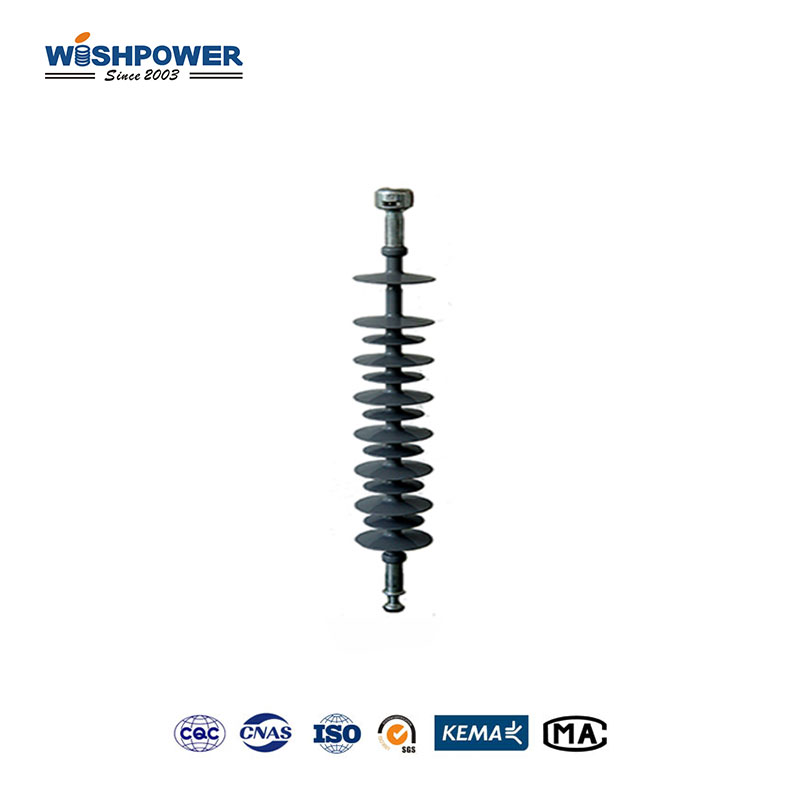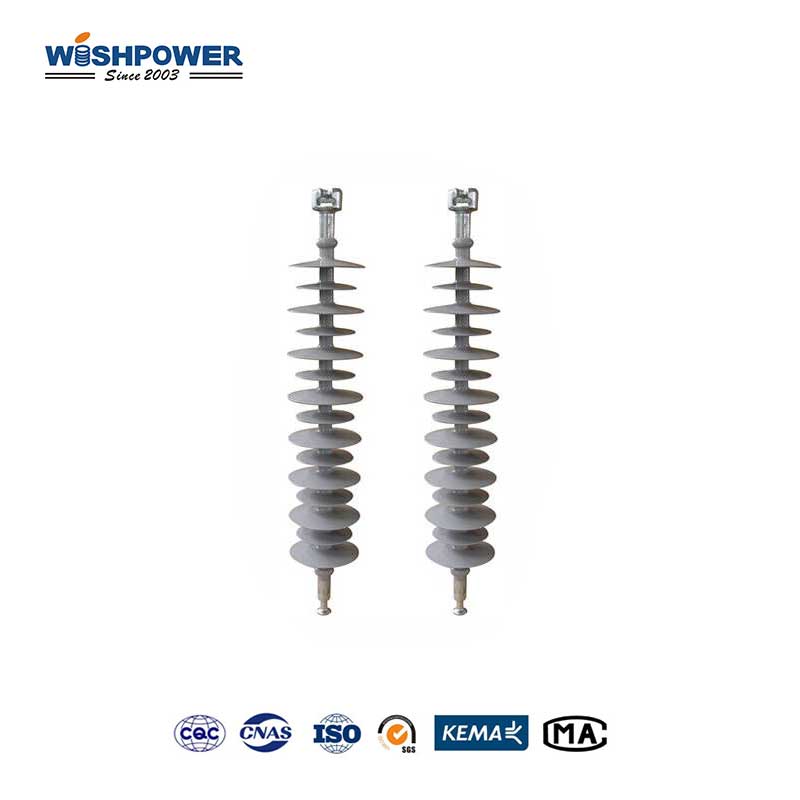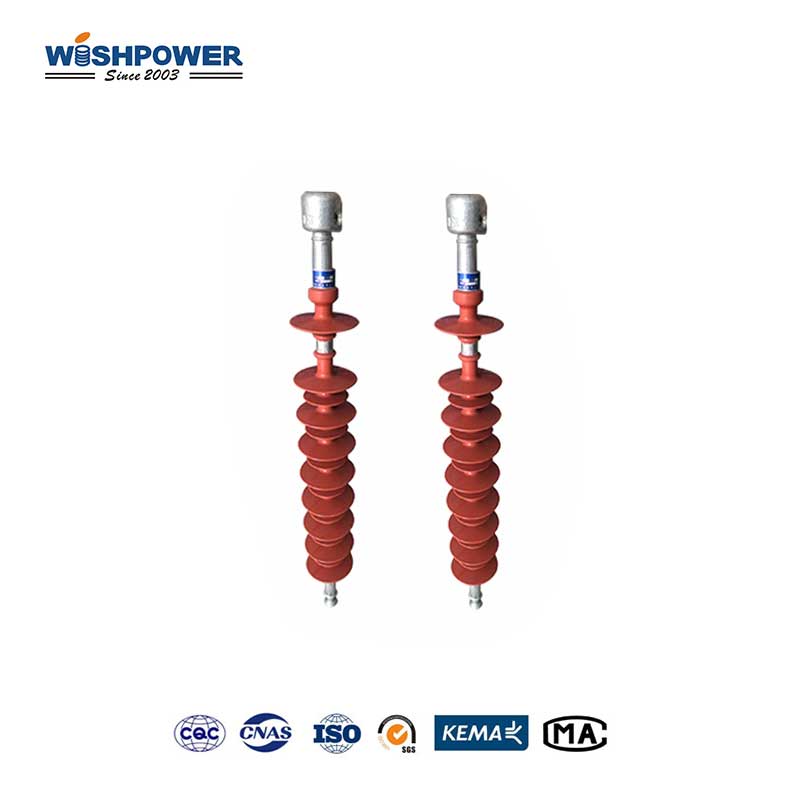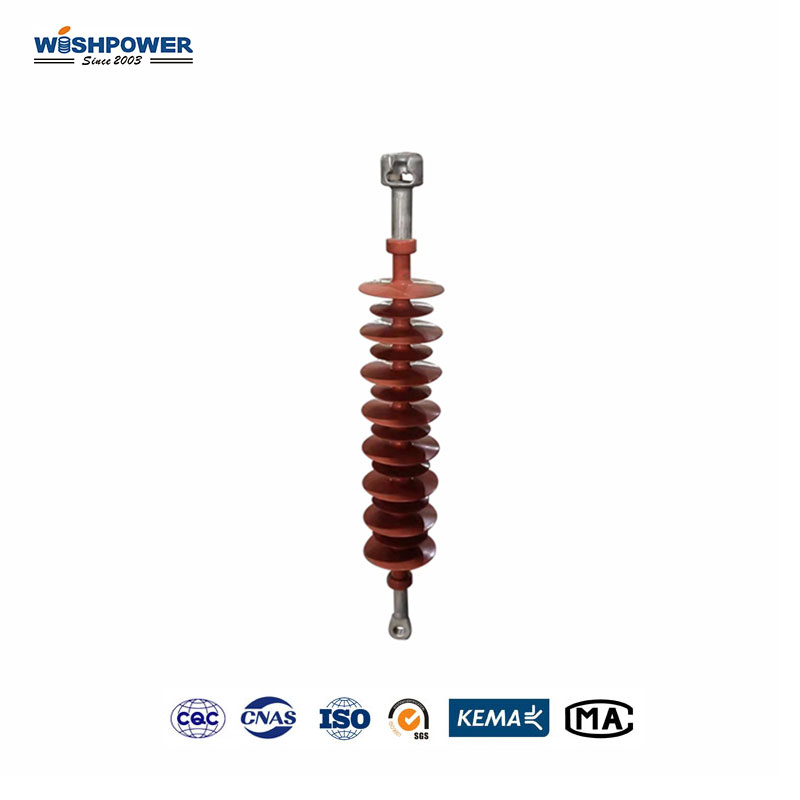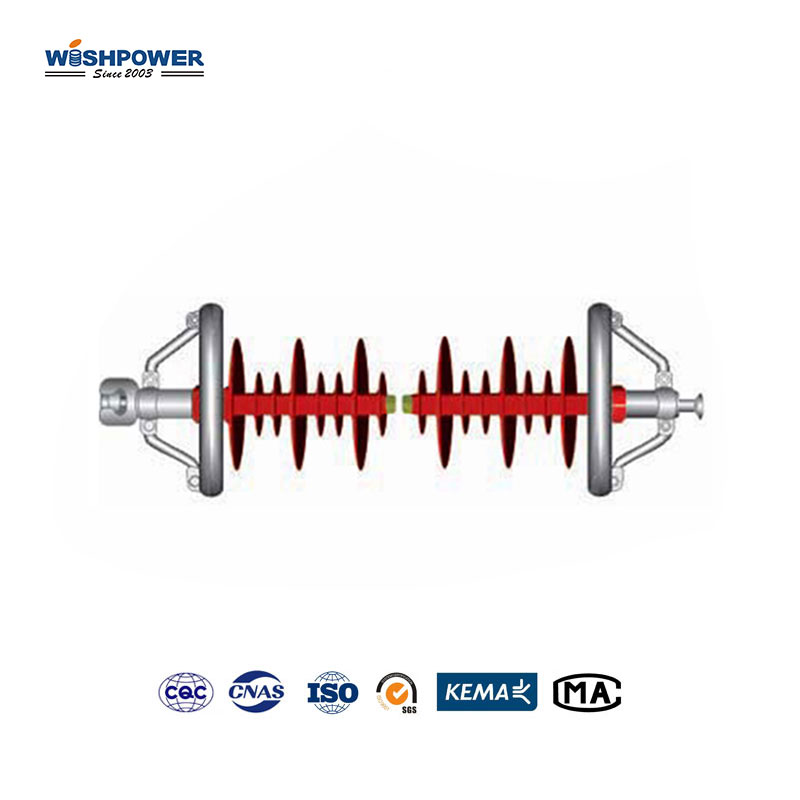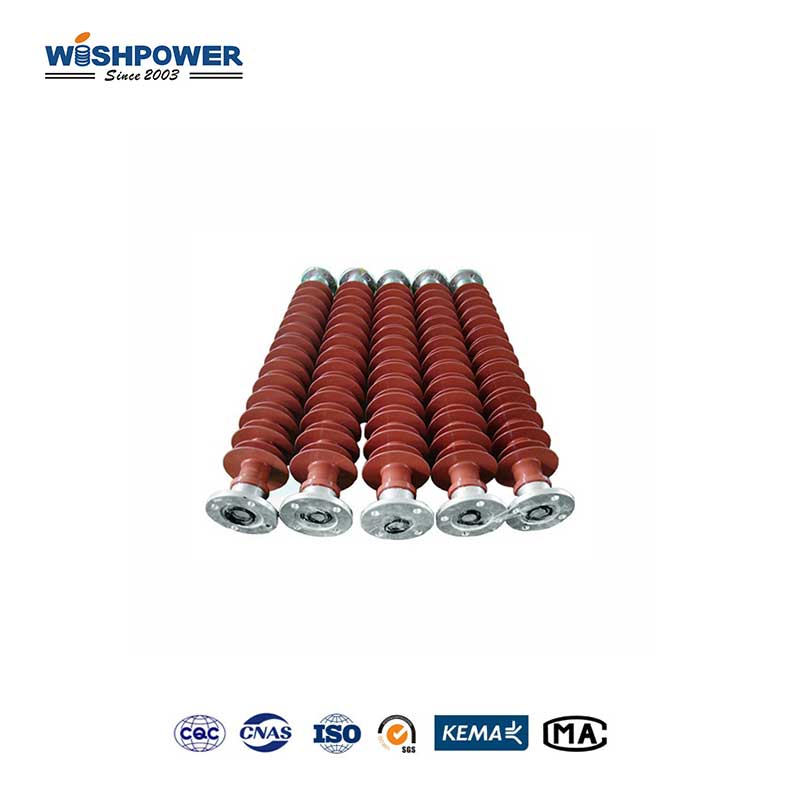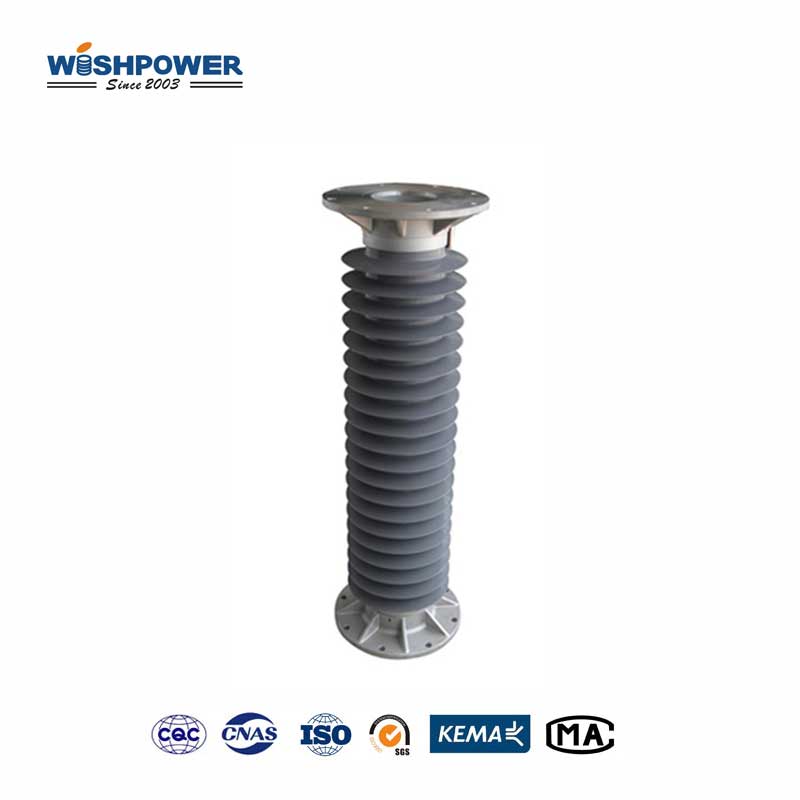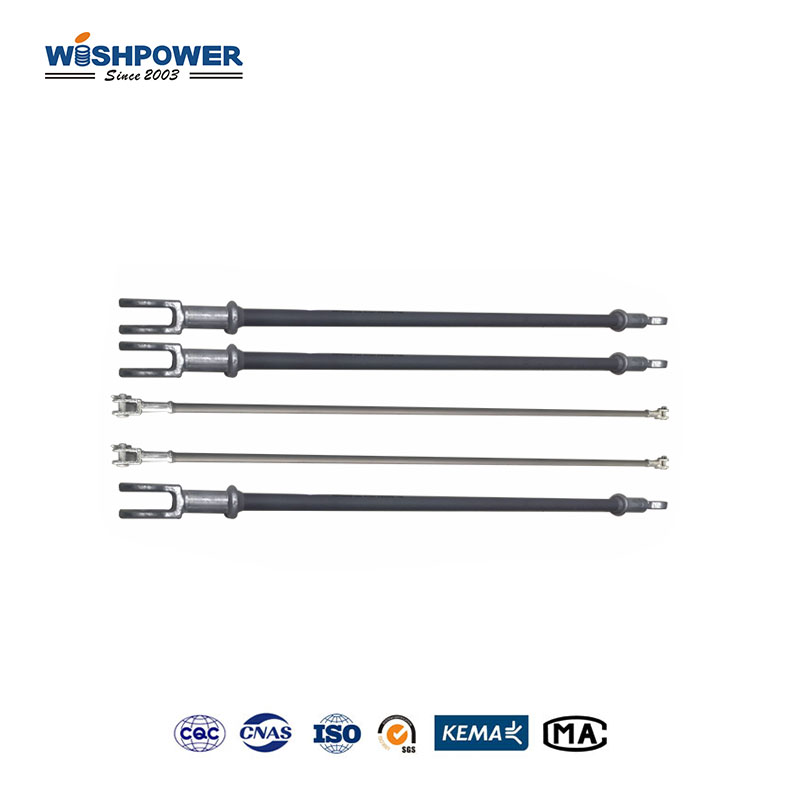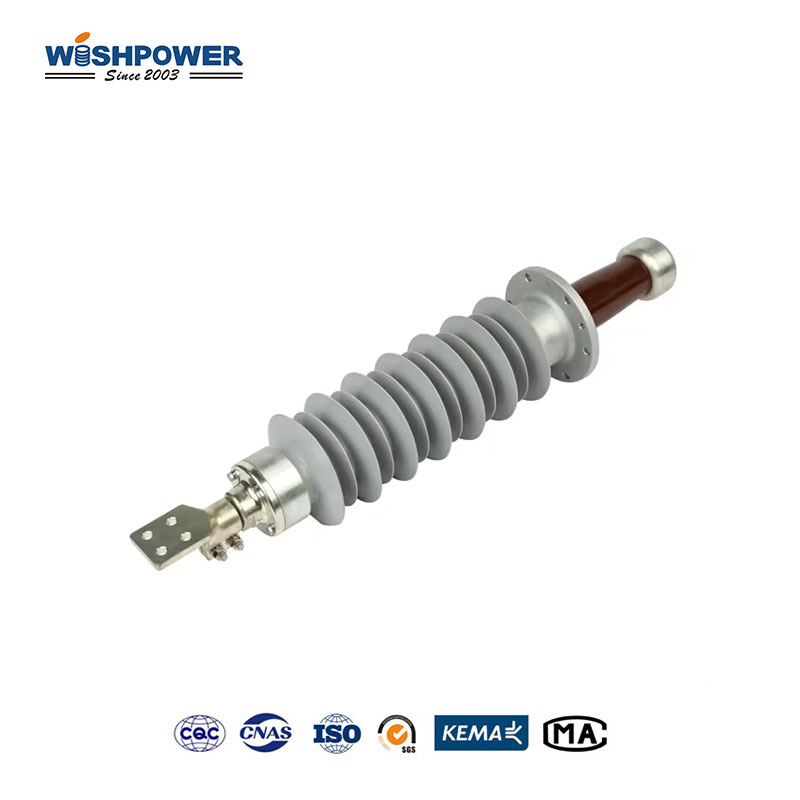Specification
| Type of Insulator |
FXBW-500/(420/400) |
FXBW-500/(550/530) |
| Specified Voltage |
500 kV |
500 kV |
| Specified Mechanical Tensile Load |
420/400 kN |
550/530 kN |
| Connection Structure Mark |
28 |
32 |
| Section Length |
4450±50 mm |
4450±50 mm |
| Min. Arcing Distance |
4000 mm |
4000 mm |
| Big shed Diameter |
190 mm |
218 mm |
| Diameter of Grading Ring |
350/370 400 mm |
350/370 400 mm |
| Diameter of Grading Ring |
370/400 mm |
370/400 mm |
| Min. nominal Creepage Distance |
14000 mm |
14000 mm |
| Lightning Impulse Withstand Voltage(peak value) |
≥2250 kV |
≥2250 kV |
| Operating Impulse withstand Voltage(Peak) |
≥1240 kV |
≥1240 kV |
| Power Frequency WithstandVoltage Min.Wet(RMS) |
≥740 kV |
≥740 kV |
| Reference Weight |
33 kg |
34 kg |
The table above is just one of our product parameters. If you want more information, please get in touch with info@wishpower.net or download the file below.
What is the Composite Tension Insulator?
The Composite Tension Insulator is a high-performance electrical insulator manufactured for use in power transmission and distribution systems, where high mechanical strength is required for subjected to heavy load tension. Glass fiber-reinforced epoxy resin is the typical material used as the core of the insulator that has great tensile strength and bending strength. Then the core is encased in a weatherproof polymer material, such as silicone rubber, to protect it from environmental stressing devices such as UV radiation, humidity, salt, and pollution. It’s more lightweight, making it easier to handle and install in difficult environments or high-altitude applications. Additionally, they are extremely crush resistant so safety and durability are greatly improved even under extreme temperature extremes or heavy ice loads. They’re designed for fade-away long-term durability in adverse weather conditions and decrease the threat of flashovers or power outages resulting from pollution or arcing.
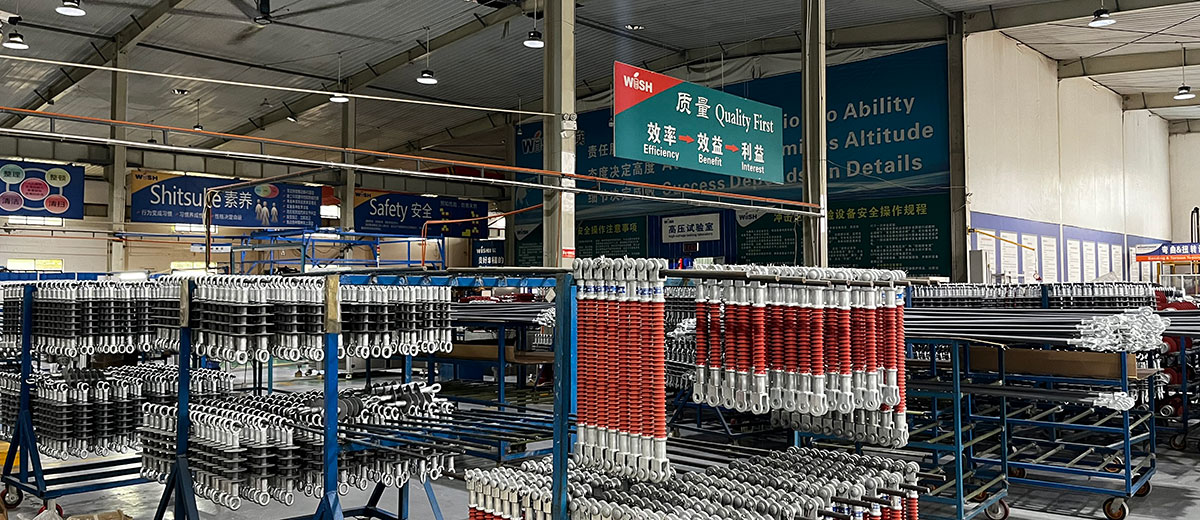
What is the “Tension”?
In power systems, tensile loads are borne by the design of insulators or supporting structures and are called “tension-type”. However, it is mainly used in transmission lines and power equipment. In high voltage lines, it offers the pull and tension of the lines so that the line will stably and reliably hang up in the air without sag or break because of gravity or outside forces. The main features of it are its high mechanical strength, and its capacity to bear very high tensions. Typically, such an insulator utilizes lightweight and high-strength materials, i.e. glass fiber core rods encapsulated by silicone rubber jackets with excellent weather resistance, pollution resistance, and crush resistance, and consequently suitable to severe environments, like coastal areas, heavy pollution, and high altitudes. In addition, this design decreases the number of insulator strings and makes installation and maintenance easier.
Features
- Superior Tensile Strength
The fiberglass-reinforced composite tension insulator can withstand tremendous tensile loads. This strength is necessary to do this for high-tension transmission lines, particularly long spans or forbidding terrain.
- It is highly resistant to stress.
Unlike conventional insulators, it is so strong under tension that it does not bend or crack. Because they can stay resilient enough to keep structural integrity with sudden fluctuations in load from environmental conditions including wind or ice, this resilience is a valuable characteristic.
- Lightweight, Reduced Sag
Because of its lightweight, it aids in reducing overall line sag which is critical to maintaining safe clearances on stationary transmission lines. In high-tension applications, this feature is handy because it assures the insulator can be properly aligned without the stress of too great a load.
- Dynamic Loads Durability
The insulator has been designed to accommodate dynamic loads put on the insulator by elements like wind gusts or line vibrations, which put additional stress on the insulator. This strong material with a flexible form absorbs the dynamic loads without sacrificing tensile performance.
- Better stability in a high-voltage environment
These insulators can help stabilize conductors, keep them from displacing the line, and thereby reduce the risk of power outages in areas where transmission lines are subjected to high tension due to the great spans or harsh conditions.
Application
- Long-span transmission lines
The conductors are subjected to high tensile forces and it is ideal for long-span transmission lines. These properties make it well suited to long-distance transmission through its high tensile strength and lightweight providing stable support without excessive sagging.
- Mountainous and remote areas
Its lightweight and tough characteristics greatly simplify transportation, setup in mountains and remote places where installation and maintenance are difficult. Most provide stable, tensile support that can withstand a variety of environmental conditions for use as a reliable power transmission.
- High-wind areas
It is useful to maintain line stability in the presence of strong winds or storms. With its rugged design, it’s designed to resist high tensile loads to minimize conductor sway or displacement reducing line damage and power outages in severe weather.
- Icing-prone environments
In cold climates, it is normal to use composite tension insulators as they add extra weight and tension to transmission lines from ice and snow accumulation. Designed carefully to survive additional tensile stress from ice loads, they perform reliably in the harshest cold and worst icing conditions.
- Coastal areas and polluted areas
Where salt and pollution may damage the insulator for lines in coastal or industrial areas, composite tensile insulators give effective tension support with high corrosion and pollution resistance. In these high-stress environments, the hydrophobic surface minimizes buildup, stabilizes insulation, and helps reduce flashover risk.
About Wishpower
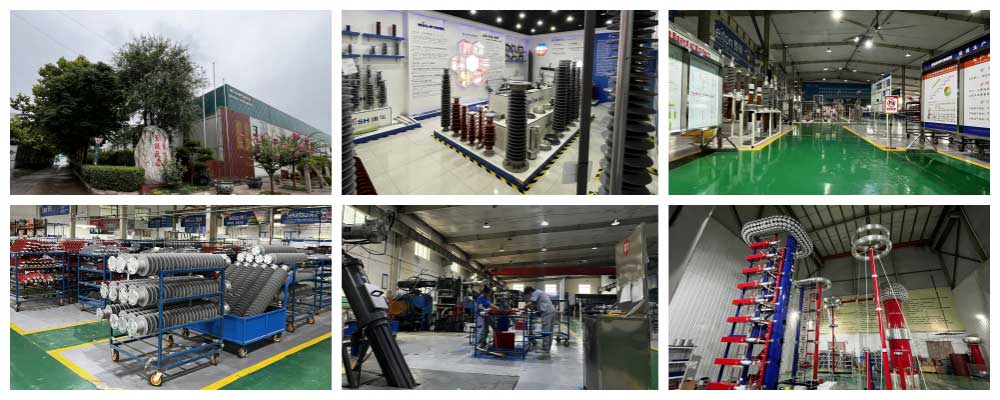
Certificate

Hot Tags: Composite Tension Insulator, Composite Insulator, China, Thailand, manufacturers, ISO factory, wholesale, KEMA, high quantity, best, price, low to high voltage






